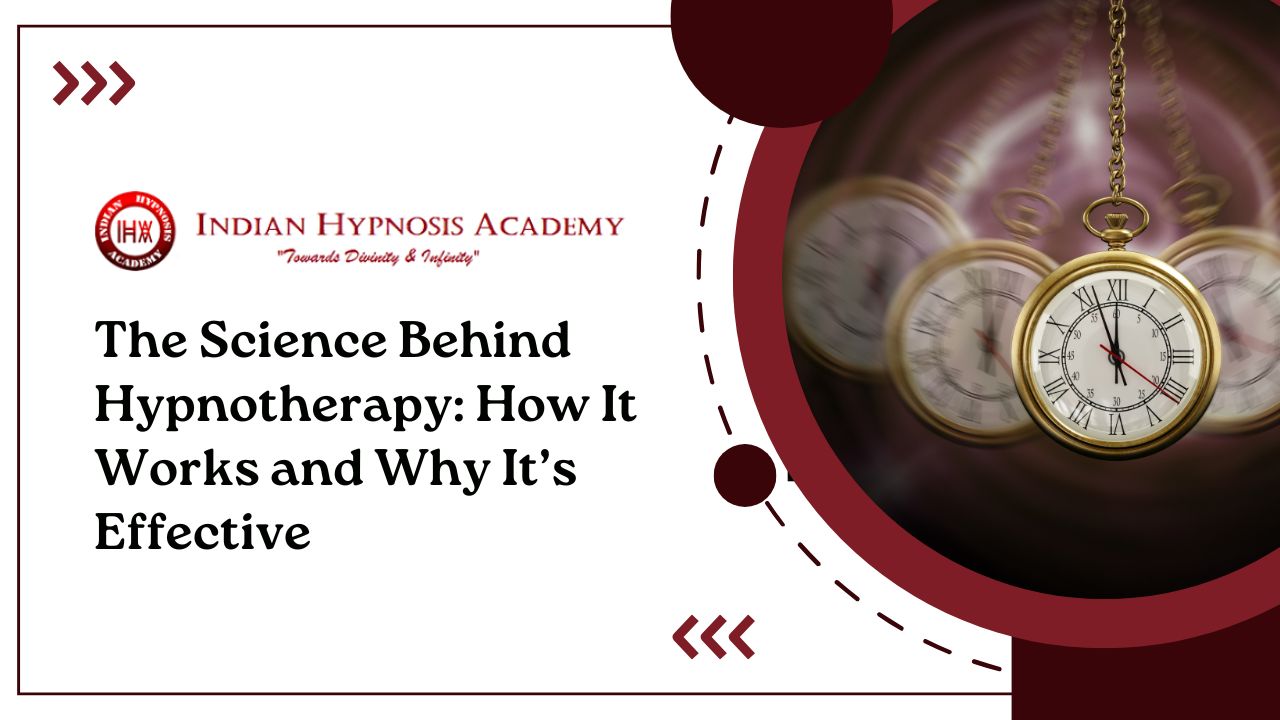Have you ever watched a hypnotist swing a pocket watch and wondered if it’s all just an illusion? Or perhaps you’ve heard stories about people overcoming fears or quitting bad habits through hypnotherapy. The truth is, there’s more to this intriguing practice than meets the eye. It combines science, psychology, and a touch of mystique to unlock the potential of the human mind.
In our fast-paced world filled with stressors, finding effective ways to cope can feel overwhelming. Hypnotherapy offers a unique avenue for healing and personal growth that goes beyond traditional methods. So what exactly is hypnotherapy? How does it work? And why do so many people swear by its effectiveness?
Join us as we delve into the science behind hypnotherapy, exploring its history, techniques, benefits—and even some inspiring success stories along the way. Whether you’re curious or skeptical, there’s much to uncover about this fascinating field that could change your perspective on mental wellness forever.
What is Hypnotherapy?
Hypnotherapy is a therapeutic technique that uses guided relaxation, focused attention, and suggestion to achieve a heightened state of awareness. This altered state allows individuals to tap into their subconscious mind, where thoughts and emotions often reside beyond our conscious reach.
In this relaxed state, clients can explore their feelings about various issues—be it anxiety, phobias, or unwanted habits. The therapist helps facilitate this journey by offering suggestions designed to promote positive change.
It’s important to note that hypnotherapy isn’t about losing control or being manipulated; rather, participants remain fully aware throughout the process. They actively engage with the experience while experiencing profound relaxation.
Often confused with stage hypnosis for entertainment purposes, hypnotherapy stands apart as a legitimate clinical practice recognized in psychology and medicine. It serves as a powerful tool for personal transformation and healing when wielded skillfully by trained professionals.
The History of Hypnosis and Its Evolution into Hypnotherapy
The roots of hypnosis trace back to ancient civilizations. Cultures like the Egyptians and Greeks used trance-like states for healing rituals and spiritual practices. The term “hypnosis” emerged in the 19th century, thanks to Scottish physician James Braid. He introduced it as a scientific method rather than mere mysticism.
Braid’s work laid the foundation for modern hypnotherapy. His approach shifted perceptions, moving away from theatrical performances toward clinical applications.
In the decades that followed, pioneers like Sigmund Freud began exploring hypnosis within psychotherapy. This integration marked a pivotal evolution.
By the mid-20th century, hypnotherapy gained credibility as researchers studied its effects on conditions such as anxiety and chronic pain. Today, it’s recognized not only in therapeutic settings but also in self-improvement contexts—continuing to evolve with advancements in psychology and neuroscience.
How Does Hypnotherapy Work?
Hypnotherapy operates through a unique interplay between the conscious and subconscious mind. During sessions, a trained hypnotherapist guides you into a relaxed state of heightened awareness. This is often described as an altered state of consciousness.
In this trance-like condition, your mind becomes more receptive to suggestions. The therapist can help address various issues by influencing thought patterns and behaviors at the subconscious level.
The process involves deep relaxation techniques combined with focused attention. This allows individuals to bypass mental blocks that typically hinder progress in therapy or self-improvement efforts.
Neuroscience research indicates that brain activity shifts during hypnosis, enhancing connectivity in areas responsible for emotion regulation and decision-making. As a result, clients may experience profound insights or changes that seem almost effortless compared to traditional therapeutic approaches.
This powerful tool empowers individuals to confront past traumas and reshape their responses to challenges effectively.
Common Misperceptions about Hypnotherapy
Many people think hypnotherapy is akin to stage hypnosis, where individuals perform silly acts under a trance. This misconception can overshadow its therapeutic benefits and genuine nature.
Another common myth is that the hypnotist has complete control over the subject’s mind. In reality, clients remain aware and in charge throughout the process. Hypnosis isn’t about losing control; it’s about enhancing focus.
Some believe hypnotherapy works like magic—offering instant solutions without effort. However, real change often requires commitment and practice from the individual.
Additionally, there’s a belief that only certain types of people can be hypnotized. The truth is anyone with an open mind can experience its effects, regardless of personality traits or background.
These misconceptions hinder understanding of what hypnotherapy truly encompasses: a valuable tool for personal growth and healing.
Benefits of Hypnotherapy
Hypnotherapy offers a range of benefits that can transform your mental and emotional well-being. One significant advantage is its ability to reduce anxiety. Many patients find that therapeutic sessions help them manage stress better, leading to a calmer state of mind.
Another compelling benefit is pain management. Hypnosis has been used successfully for chronic pain relief, including migraines and arthritis. This natural approach can lessen reliance on medication.
Moreover, hypnotherapy aids in behavioral change. Whether it’s breaking habits like smoking or improving sleep patterns, the subconscious mind becomes more receptive to positive suggestions during sessions.
Additionally, individuals often report improved self-esteem after undergoing hypnotherapy. The process encourages deeper self-reflection and promotes a greater understanding of personal challenges.
The versatility of hypnotherapy makes it an effective tool for various issues—physical ailments, psychological struggles, and lifestyle changes alike. Each session provides tailored support aimed at individual needs.
Different Techniques Used in Hypnotherapy
Hypnotherapy employs various techniques tailored to individual needs. One popular method is the traditional induction technique, where the therapist guides clients into a relaxed state using calming language and imagery.
Another approach is regression therapy. This method delves into past experiences to uncover root causes of current issues, helping clients reframe their memories and heal emotional wounds.
Suggestion therapy focuses on providing positive affirmations while in a trance state. Clients are more open to these suggestions, which can lead to lasting behavioral changes.
Additionally, some practitioners use cognitive-behavioral hypnotherapy (CBH), blending standard CBT with hypnosis. This combination addresses thoughts and beliefs alongside subconscious patterns for comprehensive healing.
Visualization techniques also play a key role in hypnotherapy sessions. They encourage clients to imagine desired outcomes, making it easier for them to manifest change in their lives. Each technique provides unique pathways toward transformation and self-discovery.
Case Studies and Success Stories
Hypnotherapy has transformed lives in remarkable ways. Many people have found relief from anxiety, phobias, and chronic pain through this practice.
For instance, a woman struggling with an intense fear of flying underwent hypnotherapy. After just a few sessions, she boarded a plane for the first time in years. Her joy was palpable as she shared her newfound freedom.
Another compelling story involves individuals overcoming addiction. One man fought against alcohol dependency for years. With hypnotherapeutic techniques focusing on his subconscious triggers, he successfully reclaimed control over his life.
These case studies highlight the impact of hypnotherapy on mental well-being and personal growth. Each story illustrates not just recovery but also empowerment through self-discovery and lasting change. The transformation can be profound when guided by skilled practitioners who understand the science behind hypnotherapy.
Conclusion: Is Hypnotherapy Right for You?
Hypnotherapy can be a transformative experience for many individuals. Its unique approach to accessing the subconscious mind allows for deep exploration of thoughts and behaviors that often go unnoticed in our daily lives. If you’re struggling with stress, anxiety, or other challenges, hypnotherapy may offer a pathway toward healing and personal growth.
It’s important to consider your own needs and objectives when exploring this therapeutic option. While many have found success through hypnotherapy, it’s not a one-size-fits-all solution. Consulting with qualified practitioners is crucial to ensuring you receive tailored support suited to your specific situation.
Before deciding if hypnotherapy is right for you, do thorough research on its practices and potential benefits. Understanding the science behind hypnotherapy will empower you as you embark on this journey toward self-discovery and healing. Choose wisely; after all, your mental health deserves careful consideration and respect.



